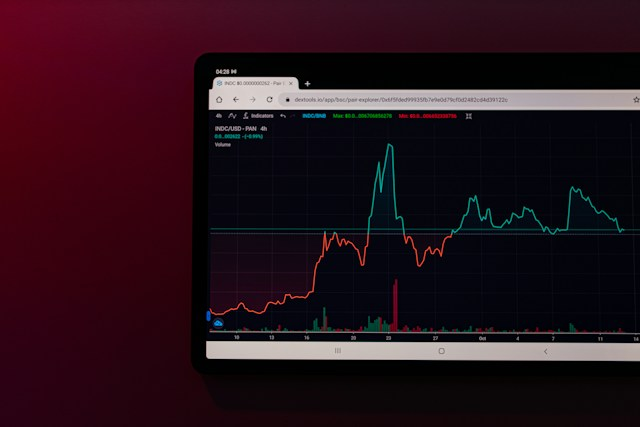If you’re an investor in the digital asset market, you must seek opportunities to diversify your portfolio beyond the traditional giants like Bitcoin and Ethereum. Altcoins have emerged as a fascinating avenue for those looking to explore new horizons and potentially amplify their returns. This blog will delve into the world of altcoin investments, discussing the significance of diversification.

The Importance of Diversification in Crypto Portfolios
Diversification is a fundamental principle in traditional investment, and it holds equal weight in the volatile world of cryptocurrencies. To mitigate risk and maximize potential gains, investors are turning to altcoins as a way to diversify their crypto holdings.
Altcoins often behave differently than Bitcoin in response to market trends and external factors. By incorporating a variety of altcoins into a portfolio, investors can offset losses from underperforming assets with gains from others, providing a more balanced investment strategy.
Find out more about the basics of investing in digital assets here. Find out more about digital asset investments here. (Link to PB2 “The Ultimate Guide to Risks and Rewards of Investing in Digital Assets”)
Exploring the Types of Altcoins
Altcoins come in various types, each with its unique features and growth potential. Understanding the different types of altcoins is crucial for making informed investment decisions. Here are some prominent categories:
- Utility tokens: These coins are designed to provide access to a specific product or platform. They are often used within blockchain ecosystems to facilitate transactions. Examples of utility tokensinclude Binance Coin (BNB), which investors can use to pay for transaction fees on the Binance exchange, and Chainlink (LINK), which enables smart contracts on the Ethereum blockchain.
- Privacy coins: These coins focus on enhancing the confidentiality and anonymity of transactions. They provide users with enhanced privacy compared to transparent blockchains like Bitcoin.
- Stablecoins: If you want a coin that’s pegged to the value of conventional fiat currencies like the US Dollar or Euro, consider investing in stablecoins. These coins can help you minimize the price volatility associated with other cryptocurrencies, and you can use them as a store of value during market fluctuations.

Risks in Altcoin Investments
While the potential for high returns exists in the world of altcoin investments, investors need to be aware of the associated risks. The cryptocurrency market is known for its volatility, and altcoins can experience significant price fluctuations over short periods. Rapid price movements can lead to substantial gains, but they also pose a greater risk of losses. Investors must be prepared for market fluctuations in the altcoin space.
Many altcoins operate in a regulatory gray area, lacking the oversight and regulation seen in traditional financial markets. This absence of a regulatory framework can expose investors to potential fraud and market manipulation.
Altcoins may also face technical challenges or vulnerabilities. Smart contract bugs, security breaches, and other technical issues can impact the functionality of a project, affecting the value of the associated altcoin.
Some altcoins may have lower liquidity compared to major cryptocurrencies. Limited liquidity can result in difficulties selling or buying assets at desired prices, especially during periods of market stress. Investors should carefully consider the liquidity of the altcoins they choose to include in their portfolios.
We know that managing altcoin investment risks without technical knowledge isn’t as easy as it sounds. This is why we recommend hiring experienced investment consultants who can help you in no time.
How To Successfully Manage AnAltcoin Portfolio Management
Building a successful altcoin portfolio requires a strategic approach that considers risk tolerance and market conditions. Here are some strategies to navigate the world of altcoin investments:
- Market research:Thorough market research is crucial before investing in any altcoin. You must understand the project’s team and underlying technology before investing. Stay informed about industry news and technological advancements. Be prepared to adapt your portfolio based on new information and evolving markets.
- Risk management:Diversify your altcoin holdings to spread risk across different projects and sectors. Avoid putting all your capital into a single altcoin, as this can expose you to higher volatility and potential losses. Set clear risk management strategies, like stop-loss orders, to protect your investment.
- Long-term analysis:Consider adopting a long-term investment strategy when dealing with altcoins. Short-term price fluctuations are common, but focusing on the long-term potential of a project can help withstand market volatility and capitalize on sustained growth.

Hire Reputable Investment ConsultantsTo Invest In Altcoins
Looking to invest in altcoins? The team at Kenson Investmentscan guide you! Our team is aware of the booming altcoins, and we can help you make a solid investment strategy. From stablecoin and NFT investment platforms to strategic digital asset consulting, we offer tailored solutions for businesses, startups, and investors seeking long-term growth.
We lead the way in decentralized finance advisory, ensuring transparent and secure investment solutions. You can embrace the future of finance with our consultancy for DeFi Finance investments, blockchain-based opportunities, and cutting-edge digital asset management services.
Connect with our team for more details about our investment advice for altcoins.
Disclaimer: The content provided on this blog is for informational purposes only and should not be construed as financial advice. The information presented herein is based on personal opinions and experiences, and it may not be suitable for your individual financial situation. We strongly recommend consulting with a qualified financial advisor or professional before making any financial decisions. Any actions you take based on the information from this blog are at your own risk.














